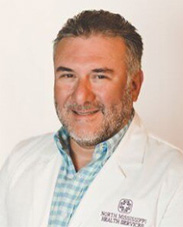



Summary
Poor sleep can have serious effects on your health. These sleep hygiene tips can help you get better sleep and feel better during the day.
Poor sleep can have serious effects on your health. These sleep hygiene tips can help you get better sleep and feel better during the day.
Picture this:
You are settling down from a long day at work and it’s time for bed. You put down the book you are reading, you turn off the lights, get cozy, shut your eyes…and that’s about as good as it gets.
You can’t sleep, and you’re not alone. According to the Centers for Disease Control, one in three people in the United States don’t get the sleep they need on a regular basis.
Sleep is essential to good health, and if you aren’t sleeping well, it can have serious health effects. Long-term sleep deprivation can contribute to impaired mental function, mood changes, reduced immune function, weight gain, increased risk of diabetes and increased risk of heart disease.
Everyone wants quality sleep. Improving your sleep hygiene is a great place to start.
Sleep Hygiene
“Sleep hygiene” refers to the healthy habits and behaviors that can help you get a good night’s rest. Just like sleep routines and a peaceful environment are important for kids, they are important for adults.
So, how do you improve your sleep hygiene?
Make your bedroom an oasis for a good night’s sleep.
- Keep your bedroom dark and quiet for sleep.
- Avoid watching TV and reading in bed.
- Avoid clock watching while trying to sleep.
- Set up your bed so you sleep with head and back elevated.
Schedule yourself for sleep success
- Eliminate naps or limit them to less than an hour.
- Get regular exercise.
- Create a regular sleep routine. Go to sleep and wake up at the same time, even on weekends.
- Go to bed only when you are ready to sleep.
- If you do not fall asleep within 20-30 minutes, get up and seek non-stimulating activity until you become sleepy.
Watch what you eat and drink
- Avoid alcohol and sedatives as these substances make excessive daytime sleepiness worse.
- Avoid caffeine, particularly in the evening.
- Avoid nicotine.
- Avoid heavy meals a few hours prior to bedtime.
- Always consult your physician before taking a sleep aid.
If following these suggestions does not improve your quality of sleep, you may want to talk to your health care provider. Your sleep could be impacted by a medical condition like sleep apnea, narcolepsy, insomnia and restless leg syndrome. Signs you might need more than improved sleep hygiene include:
- Snoring loudly or gasping for air while sleeping
- Feeling tired in the morning despite a full night of sleep
- Waking up frequently during the night
Your health care provider can help you decide if a consultation with a sleep specialist and a sleep study makes sense for you.


Jaime Ungo, MD
Jaime Ungo, MD, graduated from the Universidad Autonoma de CentroAmerica in San Jose, Costa Rica, and completed his internal medicine residency and a fellowship in pulmonary and critical care medicine at Jackson Memorial Hospital, which is affiliated with the University of Miami. He also completed a fellowship in sleep disorders at Mount Sinai Medical Center in Miami. Dr. Ungo is board certified in critical care, pulmonology, sleep medicine and internal medicine.
NMMC's Sleep Disorders Centers help people overcome sleep apnea, narcolepsy, chronic insomnia and other sleep disorders.

Subscribe to Our Newsletter
Like this content and want to get more? Sign up for True North, the health and wellness newsletter from North Mississippi Health Services!

Subscribe to Our Newsletter
Like this content and want to get more? Sign up for True North, the health and wellness newsletter from North Mississippi Health Services!

Nurse Link®
Not sure if you need Urgent Care or the ER? Call 1-800-882-6274 anytime to speak directly to a registered nurse and get immediate answers. Using computerized medical protocols, nurses direct callers to the most appropriate treatment. Our nurses are available 24 hours per day, seven days per week.